On the morning of June 24, the National Assembly discussed the draft Law on Prevention and Combat of Human Trafficking (amended).
Delegate Tran Khanh Thu ( Thai Binh ) cited a report from the Ministry of Public Security saying that in 5 years (2018-2022), 394 cases with 837 law violators and human trafficking criminals were discovered.
If in the period from 2012-2020, over 80% of the cases were human trafficking abroad, recently there have been more and more cases of human trafficking within the country. In 2022 alone, the number of domestic trafficking cases accounted for 45% of the total number of cases.
The United Nations has identified human trafficking as one of the four most dangerous crimes in the world. Delegates noted that human trafficking continues to occur globally with increasingly sophisticated methods, causing particularly serious consequences.
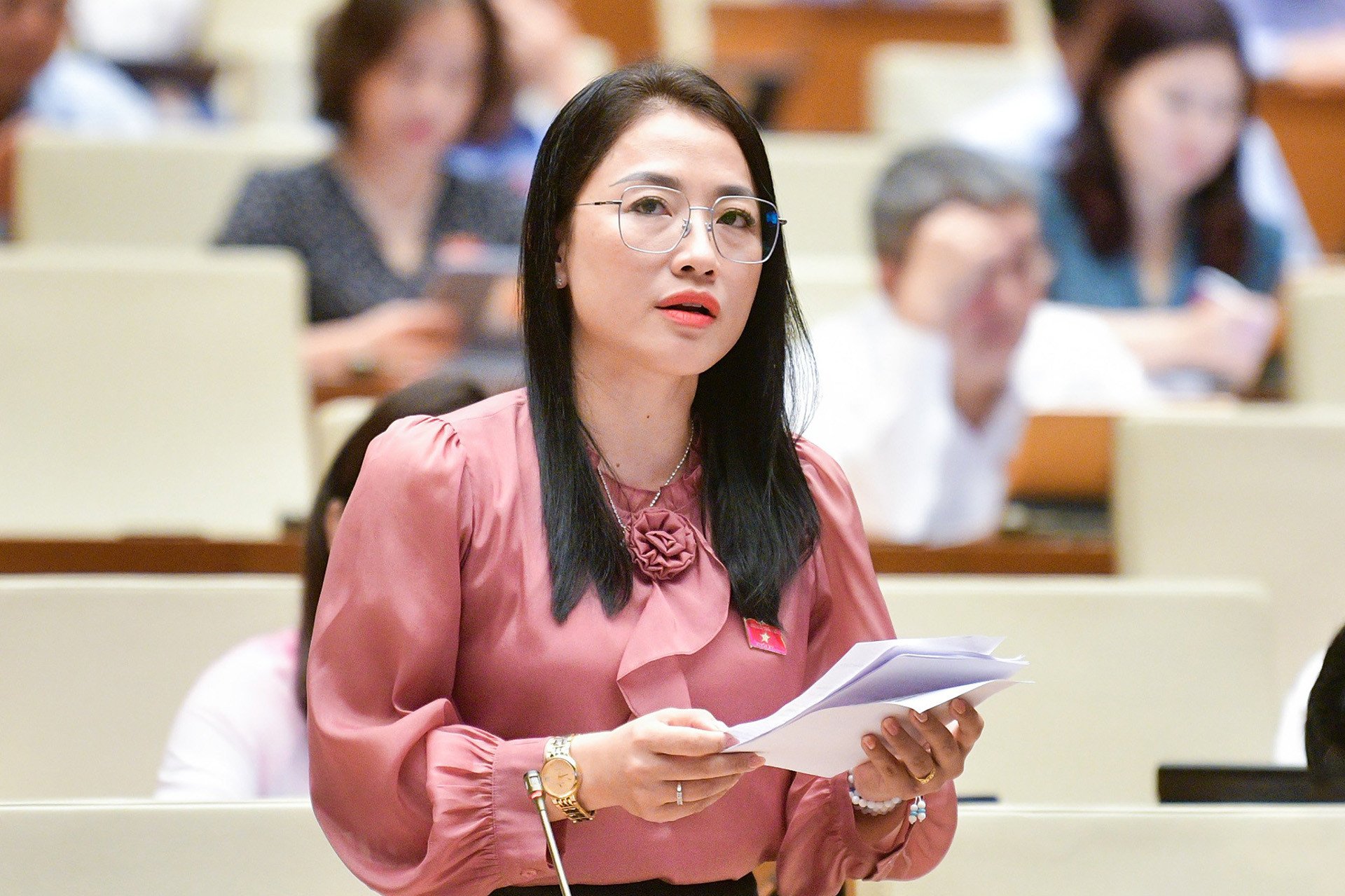
Ms. Thu shared that nowadays, with the development of technology, criminals only need to sit in one place, use social networks Zalo and Facebook to connect, lure people to go abroad or exchange and buy and sell victims domestically.
Continuing to quote the report of the Ministry of Public Security, Ms. Thu said that the number of human trafficking crimes tends to increase every year, especially recently there has been a situation of buying and selling fetuses and buying and selling men for forced labor on fishing boats.
Delegates expressed concern that in some places, there has been a sophisticated situation of buying and selling newborn babies, disguised as spontaneous charity organizations.
The new behavior that has emerged is the buying and selling of fetuses in the womb. This is a dangerous behavior for society, violates ethics, violates traditional customs and has not been regulated by law. Delegates believe that it is necessary to supplement criminal prosecution in cases of buying and selling fetuses.
Delegate Huynh Thi Phuc (Ba Ria - Vung Tau) proposed that the draft Law consider adjusting new behaviors arising in practice regarding human trafficking.
Regarding the new act of buying and selling fetuses in the womb, Ms. Phuc commented: "The buying and selling of fetuses begins from the time of pregnancy until the child is not yet born, so there are no consequences yet, leading to difficulties in handling the matter."
According to criminal law, a child is considered a human being and has civil rights when it is born, but a fetus in the mother's womb has not been adjusted to be considered a subject of criminal acts. That leads to the fact that the authorities have no basis or legal basis to handle the act of buying and selling fetuses.
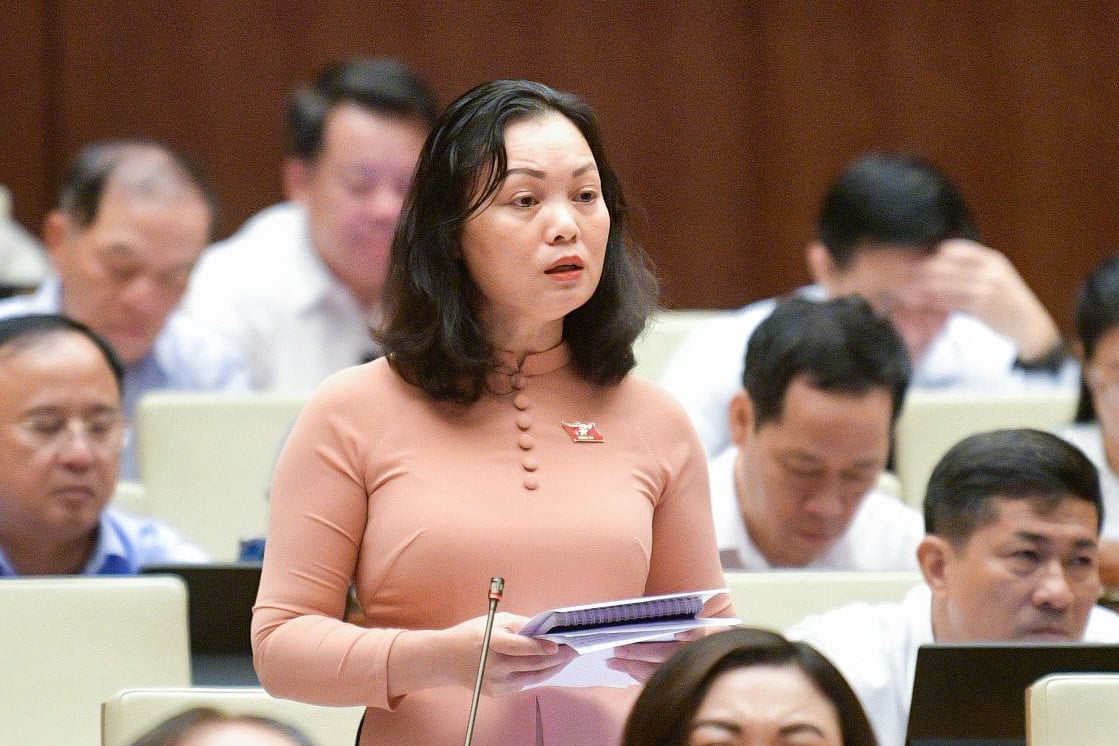
The delegate analyzed that, from a legal perspective, the behavior of a mother who has a child and then sells it should also be defined as human trafficking and has signs of committing the crime of human trafficking. However, in reality, the law has not yet regulated it, so there is no basis for consideration.
The 2015 Penal Code and the law on preventing human trafficking do not have any regulations on the above issue. Therefore, Ms. Phuc suggested considering and finding appropriate solutions for the act of buying and selling fetuses in the womb, given the increasingly complex and sophisticated situation of human trafficking.
The delegate noted that currently, human trafficking is being concealed by very complicated forms such as tourism, signing economic contracts, exporting labor, organizing marriages through brokers, adopting children through commercial legal entities, etc.
Therefore, it is necessary to consider and consider adding a commercial legal entity as the criminally responsible entity for the crime of human trafficking. This is to promptly adjust to the reality of the current situation of human trafficking with a tightly organized, multinational structure.
Speaking later, National Assembly Delegate Thach Phuoc Binh (Tra Vinh) agreed with the above opinions on considering adding regulations related to the act of buying and selling fetuses.
Delegate Binh said that according to international conventions, children, including fetuses, need to be protected from the time they are still in the womb. The sale of fetuses can be considered a serious violation of human rights and children's rights. This requires member states, including Vietnam, to have specific legal regulations.
Mr. Binh said that some countries have specifically defined the act of buying and selling fetuses as a crime. Some US states have clear regulations, prohibiting the buying and selling of fetuses and considering it a serious crime. Referring to and learning from the experiences of some countries will help Vietnam perfect its legal system.
"Although unborn, fetuses need to be protected as humans with full basic rights. Buying and selling fetuses not only violates the rights of fetuses but also seriously offends human dignity," Mr. Binh emphasized.
According to Mr. Binh, adding this act to the crime of human trafficking will demonstrate respect and protection of the rights of fetuses, in accordance with ethical and humane values.
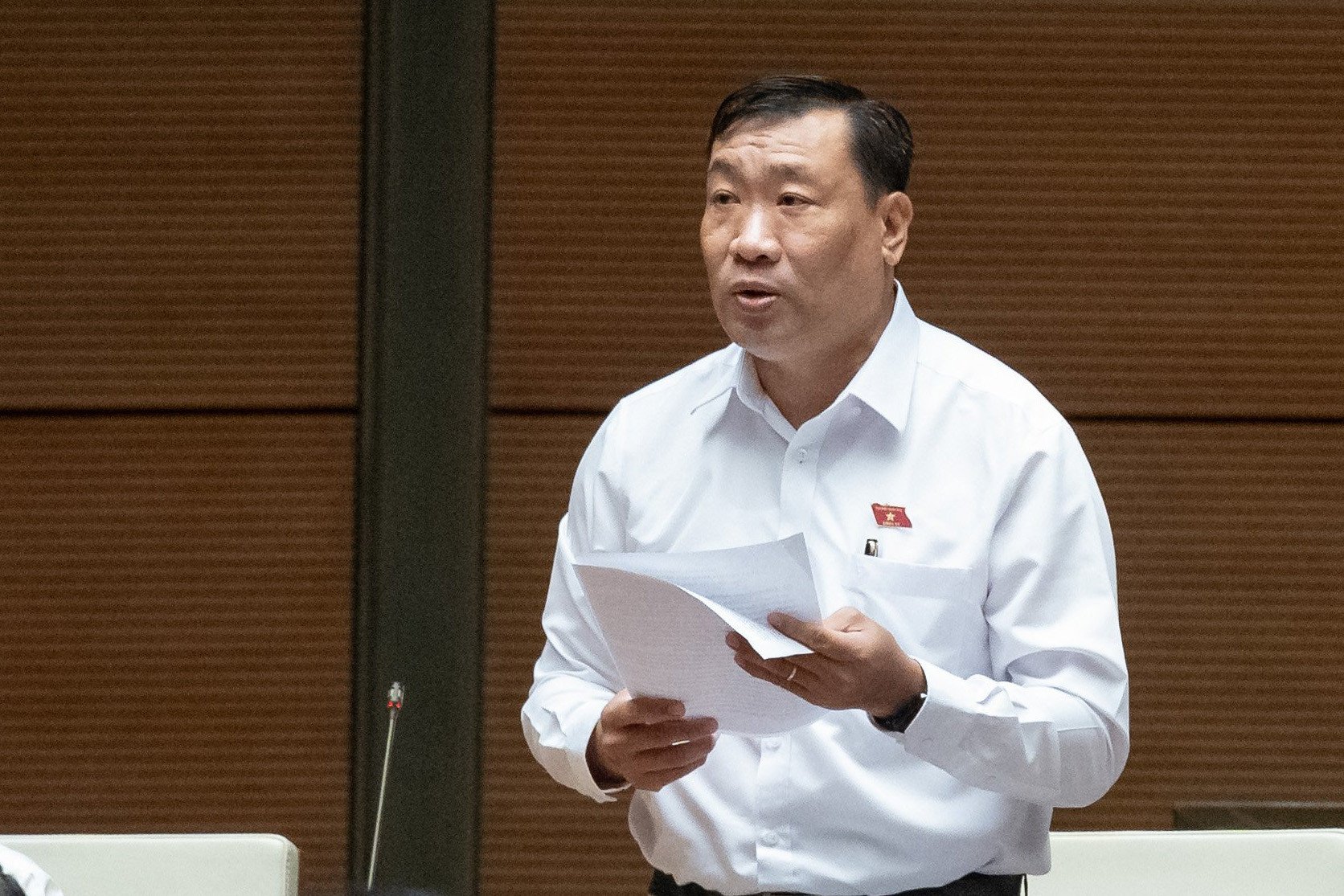
The lack of clear regulations will create loopholes for the buying and selling of fetuses, causing negative consequences for society. Adding this regulation will help prevent and stop unethical behaviors from afar and protect the safety of fetuses and pregnant mothers.
Delegates are concerned that the buying and selling of fetuses is on the rise and becoming more complicated, especially since these cases are often related to organized crime rings.
Therefore, the addition of regulations will help authorities have a legal basis to thoroughly handle cases. "Protecting the fetus also means protecting pregnant mothers from acts of coercion and pressure to sell their children," Mr. Binh emphasized.
In addition, Mr. Binh noted that it is necessary to pay attention to the difficulties in conducting investigations, collecting evidence and determining criminal acts, especially in the context of underground transactions.
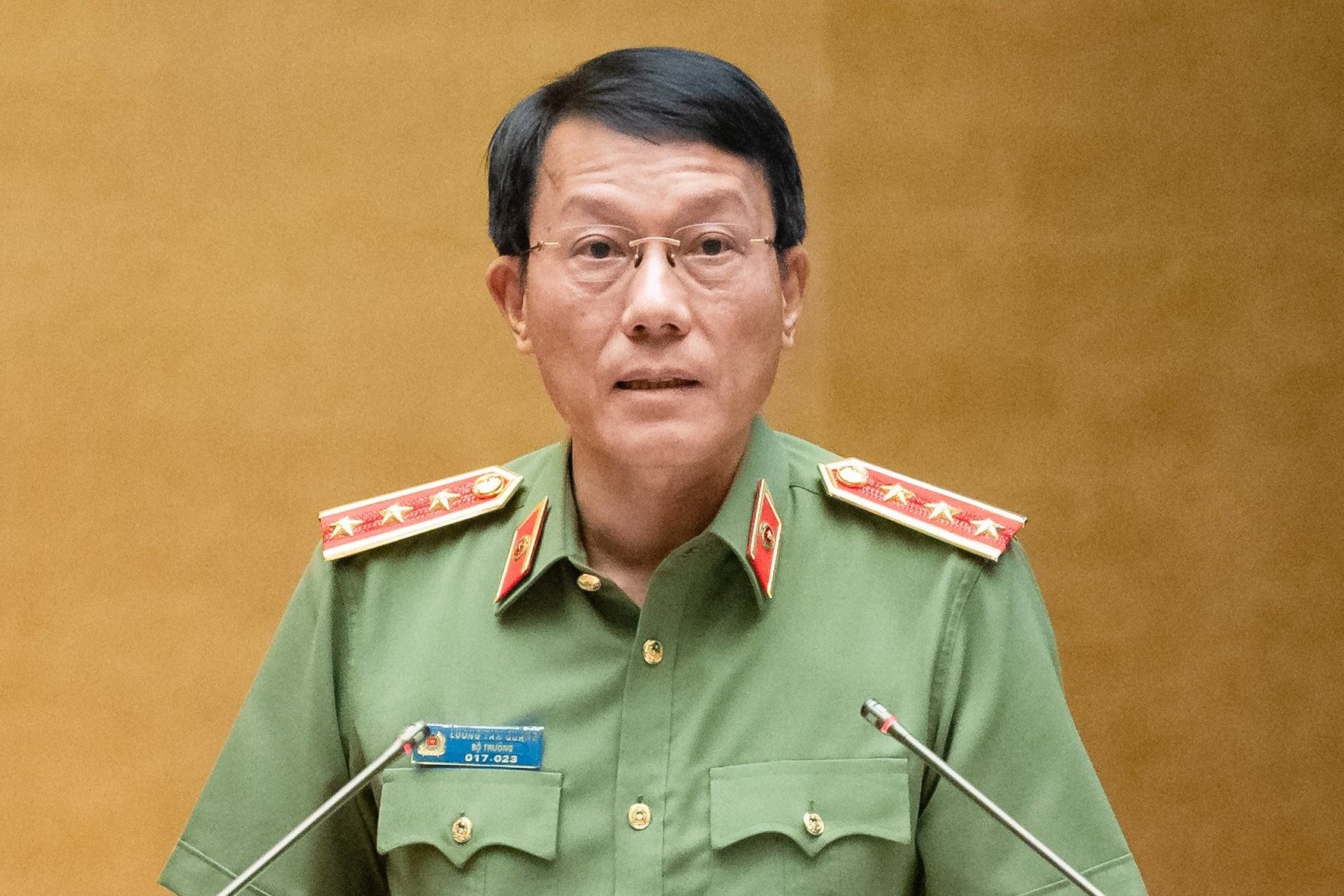
Minister of Public Security Luong Tam Quang presents draft Law on Prevention and Combat of Human Trafficking
Source: https://vietnamnet.vn/dai-bieu-quoc-hoi-de-xuat-xu-ly-hinh-su-voi-hanh-vi-mua-ban-thai-nhi-2294531.html



![[Photo] Prime Ministers of Vietnam and Thailand visit the Exhibition of traditional handicraft products](https://vphoto.vietnam.vn/thumb/1200x675/vietnam/resource/IMAGE/2025/5/15/6cfcd1c23b3e4a238b7fcf93c91a65dd)

![[Photo] National Assembly Chairman Tran Thanh Man meets with Thai Prime Minister Paetongtarn Shinawatra](https://vphoto.vietnam.vn/thumb/1200x675/vietnam/resource/IMAGE/2025/5/15/e71160b1572a457395f2816d84a18b45)




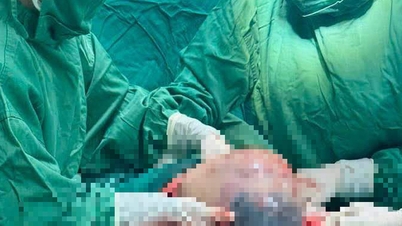

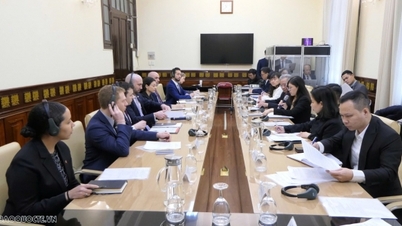




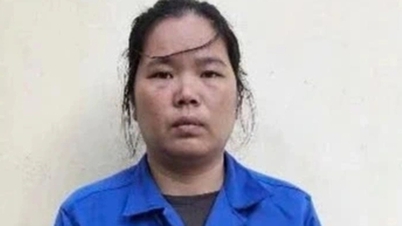


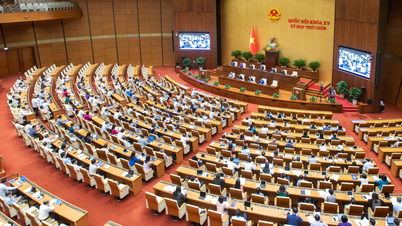
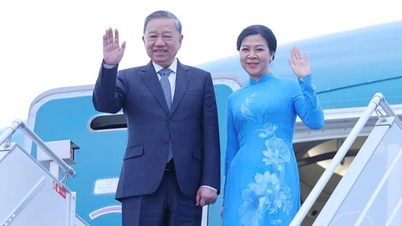


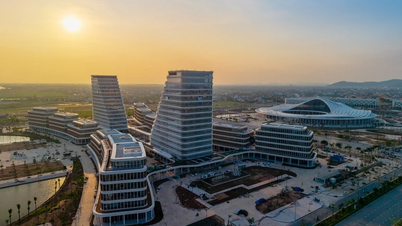












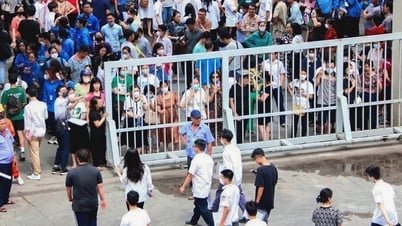




























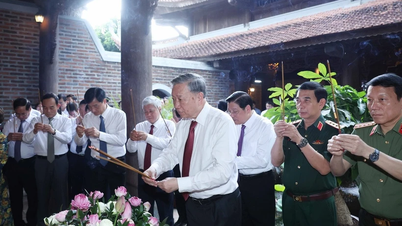
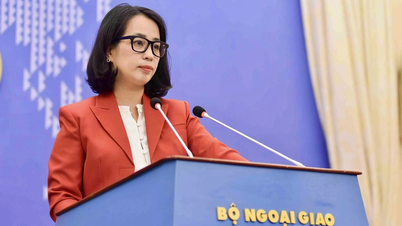







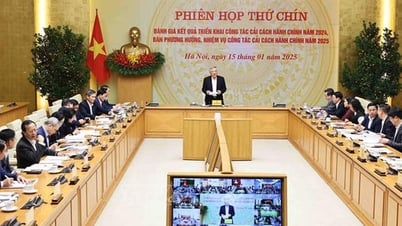
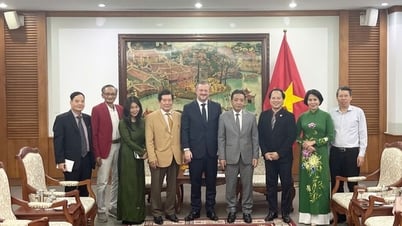
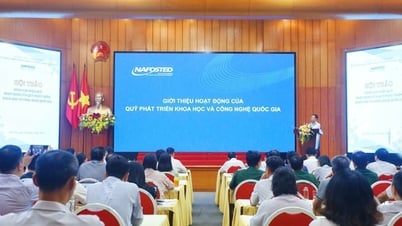

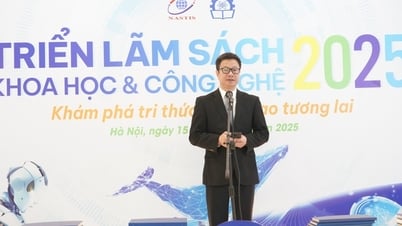





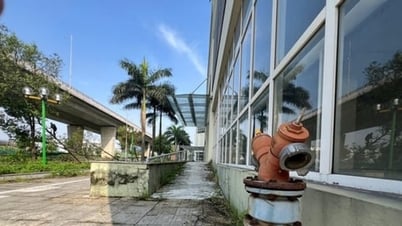
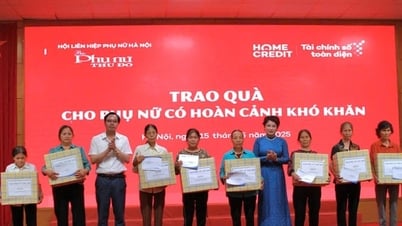



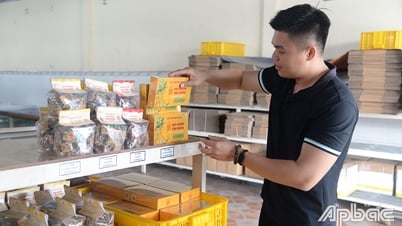






Comment (0)